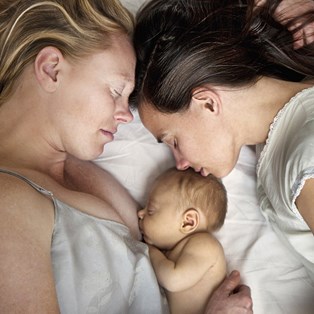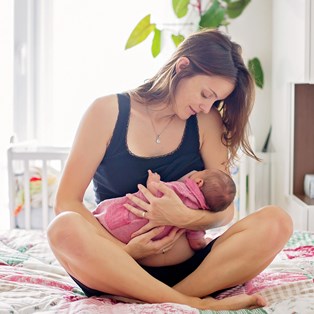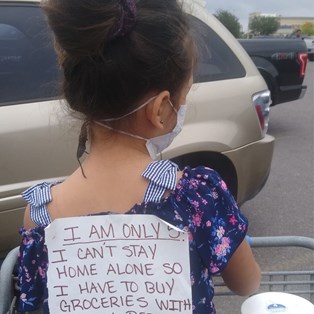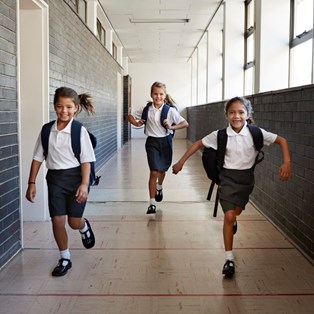Some may joke about COVID-19 baby boom, but you shouldn’t try to conceive in quarantine

Experts say now is not the time to get pregnant
By Ryan Prior
April 06 2020
As much of the world settles into a new routine of social distancing, couples are likely to have a lot more free time at home to snuggle together.
At first blush, you might think couples with some extra time on their hands would do things that could lead to a stork visiting nine months from now.
Yet with warnings of dire scenarios and an expected increase in the unemployment rate, couples whose jobs are vulnerable in this economy are likely to think again about kicking off their parenting journeys.
Then there’s the possibility of more couples splitting up.
One marriage registry official in China said he saw a quarantine-related spike in divorces, showing that more time in closed quarters may be doing some couples more harm than good.
But for couples weathering this storm together, is this a time when many will choose to add to their brood?
Baby booms
“I don’t foresee a baby boom in nine months,” Dr Renee Wellenstein, an obstetrician and functional medicine specialist in upstate New York, told CNN.
In a less severe context, like a snowstorm, it’s quite common to see an uptick in births nine months later.
She noted that couples spend more time cozying up indoors during cold winters.

Power outages and bad weather can cause an increased birth rate.
Studies back up her clinical observations.
A 2007 paper by scientists at the University of Texas and Johns Hopkins University argued that relatively minor storm advisory events that caused power outages had slight positive effects in boosting the birth rate.
However, the “highest-severity” storms causing death and destruction had a demonstrable negative impact, reducing the birth rate.
Larger disasters
“Illness, quarantine and death can all have a major impact on conception, pregnancy and birth,” scholar Lyman Stone wrote in an article published in March by the Institute for Family Studies.
“Previous academic literature has shown that high-mortality events as diverse as famines, earthquakes, heatwaves and disease all have very predictable effects on reducing births nine months later,” he said.
Stone looked at birth trends following recent catastrophes, including Hurricanes Maria and Katrina in the US as well as the 2015 Ebola outbreaks in Liberia, Sierra Leone and Guinea. Those all led to marked declines in birth rates.
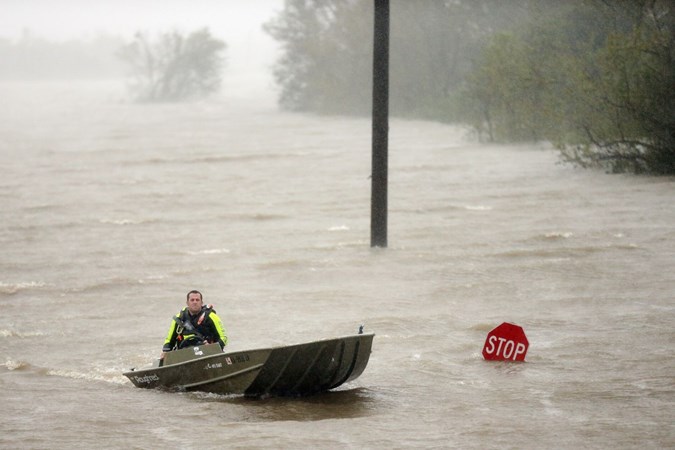
Natural disasters like Hurricane Isaac in 2012 tend to lower birth rates.
One major progression leaps out: “Events that cause a large increase in deaths tend to cause a large decrease in births nine months later,” Stone writes.
On the flip side, events such as the Cuban Missile Crisis and the Oklahoma City bombing may have led to higher birth rates, due in part to their effect on the American psyche, causing couples to cling more closely together.
Risk factors
Although being isolated can be a little fun and lead to romance, the pandemic is stressful for couples: “[The] libido is down and menstrual cycles may be off,” Wellenstein said.
“It may not be possible to conceive due to this.”
But for couples who still have the urge, Wellenstein said she would “absolutely not” advise anyone to get pregnant now, due to the uncertainty swirling around COVID-19.
There are a number of risk factors, starting with the fact there’s simply less care available in many areas as hospitals prioritise more resources toward helping the surge of COVID-19 patients being admitted.
And for women who are already pregnant, each trip to the hospital during the pandemic carries additional risk.
“It’s never ideal to have any infectious disease during the pregnancy due to the unknown impact on the child,” Wellenstein said.
“To enter a hospital puts her at risk.”
Regardless of where the science ultimately lands on the transmission of coronavirus in the placenta, it’s a risk not worth taking, Wellenstein says.
Uncertainty
While we don’t know with certainty yet, preliminary studies available so far appear to argue against coronavirus being transmitted during pregnancy.
A study recently published in the journal JAMA Pediatrics focused on 33 pregnant women who were infected with coronavirus.
It showed that in the first week of their lives, just three of the newborns tested positive.
But experts believe the babies contracted the virus once they were out in the world, not while in their mothers’ wombs.
Dr Andrew Whitelaw is emeritus professor of neonatal medicine at the University of Bristol.
“As all infants had amniotic fluid and umbilical cord blood tested for COVID-19 with negative results, this is evidence against the virus being transmitted from mother to fetus via the placenta,” Whitelaw told the Science Media Centre in the UK.
Fearful of infecting baby
Nevertheless, doctors have concerns about whether a mother could expose her child to the virus after birth.
Dr Leana Wen, the former health commissioner for the city of Baltimore, told CNN’s Dr Sanjay Gupta she was fearful of being infected during a critical time in her life and her baby’s.
“I am almost 39 weeks pregnant as of the time that we are speaking,” she said.
“I mean, I have a recurring nightmare myself of contracting COVID-19, and going through childbirth where I have to wear a mask.”
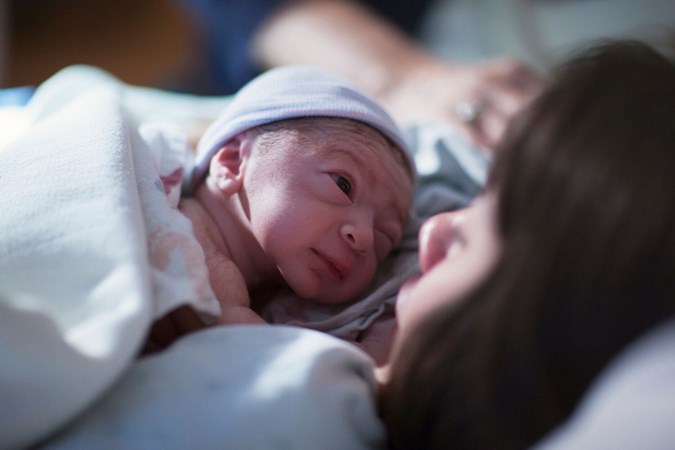
A newborn with mum in hospital.
“And if my newborn were to get ill,” Wen continued, “she would become extremely ill because she doesn’t have immunity and little babies are so fragile.
“And I know of so many other pregnant women who have their own anxieties in this time.
“Because COVID-19 is a respiratory virus, if the mom were to cough and then she coughed onto her hand and then her hand touched the baby, she could infect her newborn that way.”
The CDC’s recommendations include having safeguards to separate the mom and the newborn.
Wait until things return to normal
It’s still too soon to make any substantive birth rate forecasts.
We don’t know how long this year’s pandemic will remain vicious, what the long-term effects on young people are, or how far and wide a deepening global economic recession might reach.
History does have examples of a surging birth rate after tragedy: The historic Baby Boom generation is composed of those born in America’s post-World War II years between 1946 and 1964.
Scholars point to many causes, but generally agree that following the tumult of the Great Depression and World War II, couples found it more realistic to raise children in the relative calm and economic prosperity following the war.
The birth rate ebbs and flows.
And with any coronavirus-related baby boom, it could manifest once things feel safe again.
Though Stone says the coronavirus could lead to a short-term slump, his analysis shows that birth rates could rebound again over the next one to five years.
“A couple months after this situation resolves you might start to see more pregnancies,” Wellenstein said.
Originally published on 7News.





